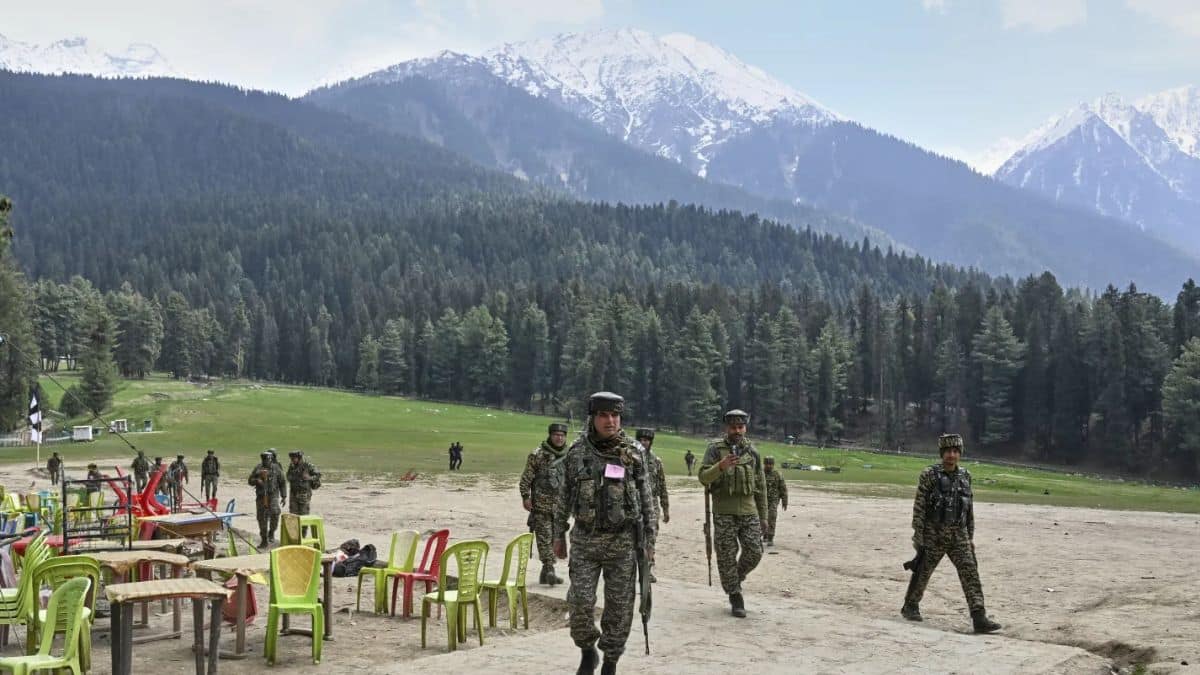

The Ministry of External Affairs (MEA) has revealed that investigations into the recent terror attack in Pahalgam, Jammu & Kashmir, have uncovered communication nodes of terrorists and their handlers located in Pakistan. This revelation has further strained relations between India and Pakistan, with India pointing fingers at Pakistan-based terror groups for orchestrating the attack.
On April 22, 2025, a brutal terror attack targeted Indian tourists in Pahalgam, resulting in the tragic loss of 26 lives, including one national of Nepal. The attack, carried out by Pakistani and Pakistan-trained terrorists belonging to Lashkar-e-Taiba (LeT), was marked by extreme barbarity, with victims being shot at close range, often in front of their families. According to Foreign Secretary Vikram Misri, the intent behind the attack was to undermine the normalcy that has been returning to Jammu & Kashmir, particularly targeting the tourism sector, which has seen a record number of visitors in the past year.
Following the attack, a group called The Resistance Front (TRF) claimed responsibility. However, Indian authorities have identified TRF as a front for the UN-proscribed Pakistani terrorist group, Lashkar-e-Taiba. India had previously shared intelligence about TRF's role as a cover for Pakistan-based terror groups with the UN's 1267 Sanctions Committee.
The MEA has emphasized the cross-border linkages of the Pahalgam terror attack, highlighting that it occurred after successful elections and progress in economic growth and development in the Union Territory. The attack was designed to disrupt the improving situation and create an environment conducive to cross-border terrorism from Pakistan.
In response to the attack, India launched strikes on nine terrorist sites in Pakistan and Pakistan-occupied Kashmir. Foreign Secretary Vikram Misri stated that these actions were measured, non-escalatory, proportionate, and responsible, focusing on dismantling terrorist infrastructure and disabling terrorists planning to cross the border into India.
The United Nations Security Council (UNSC) issued a press statement condemning the Pahalgam terror attack, emphasizing the need to hold the perpetrators, organizers, financiers, and sponsors accountable. However, India has expressed disappointment that the statement did not explicitly mention TRF or the cross-border linkages of the attack, allegedly due to objections from Pakistan, supported by China.
The investigation into the Pahalgam attack has revealed disturbing details about the planning and execution of the attack. Intelligence agencies are monitoring Telegram groups allegedly used by Pakistan-based handlers to coordinate the attack, providing detailed instructions to operatives. These instructions cover various aspects, including travel, communication, and logistics, indicating a well-organized and meticulously planned operation.
Despite Pakistan's denial of involvement in the Pahalgam terror attack, India remains unconvinced, citing evidence of cross-border linkages and the involvement of Pakistan-based terror groups. The MEA has conveyed its concerns to Pakistan and called for concrete action to dismantle terrorist infrastructure and prevent cross-border terrorism.
The Pahalgam terror attack has not only resulted in a tragic loss of life but has also raised serious concerns about regional security and stability. India's response to the attack, including military strikes and diplomatic efforts, reflects its determination to combat terrorism and protect its interests. The exposure of communication nodes and the unearthing of detailed planning by Pakistan-based handlers have further strengthened India's case against cross-border terrorism and the need for international cooperation to address this menace.